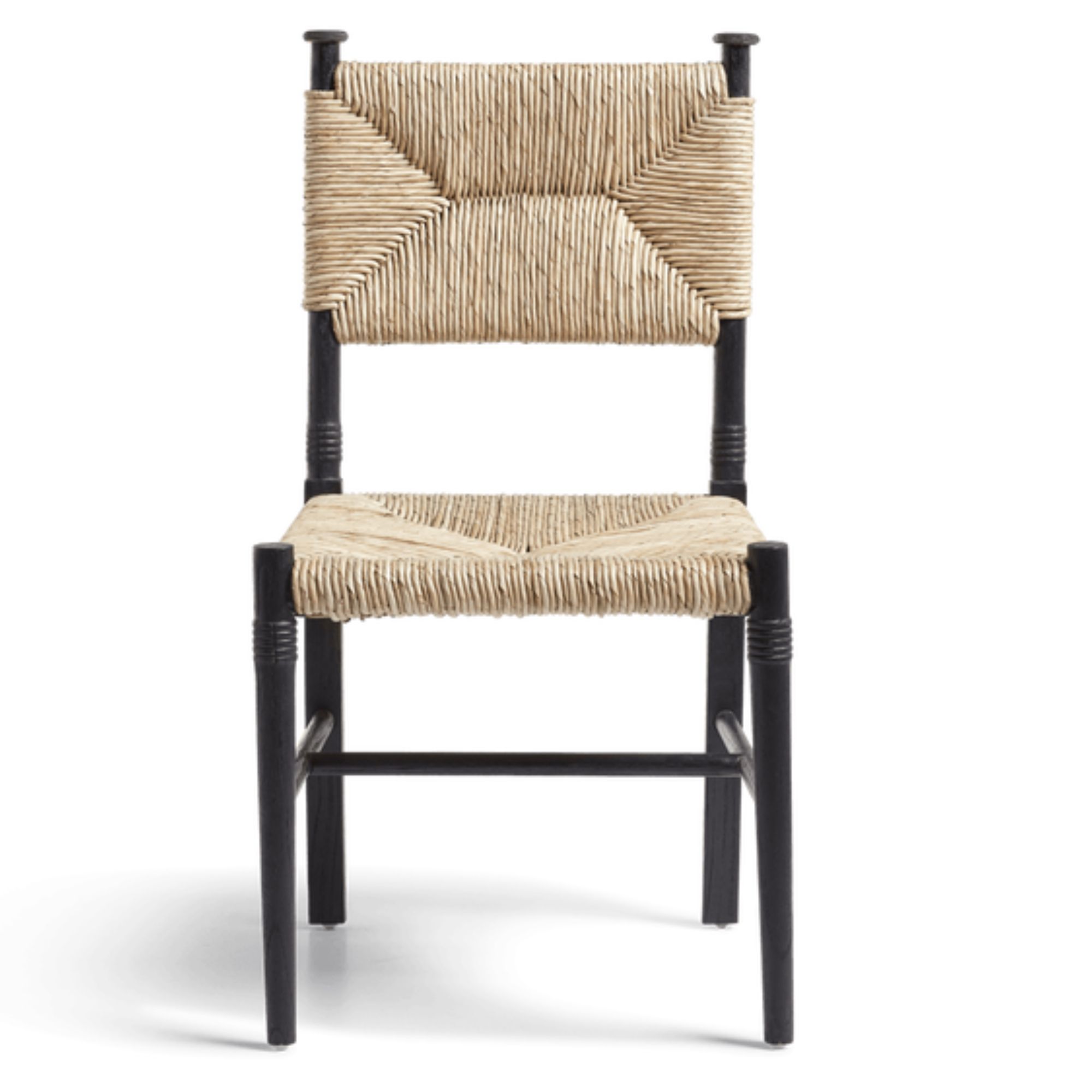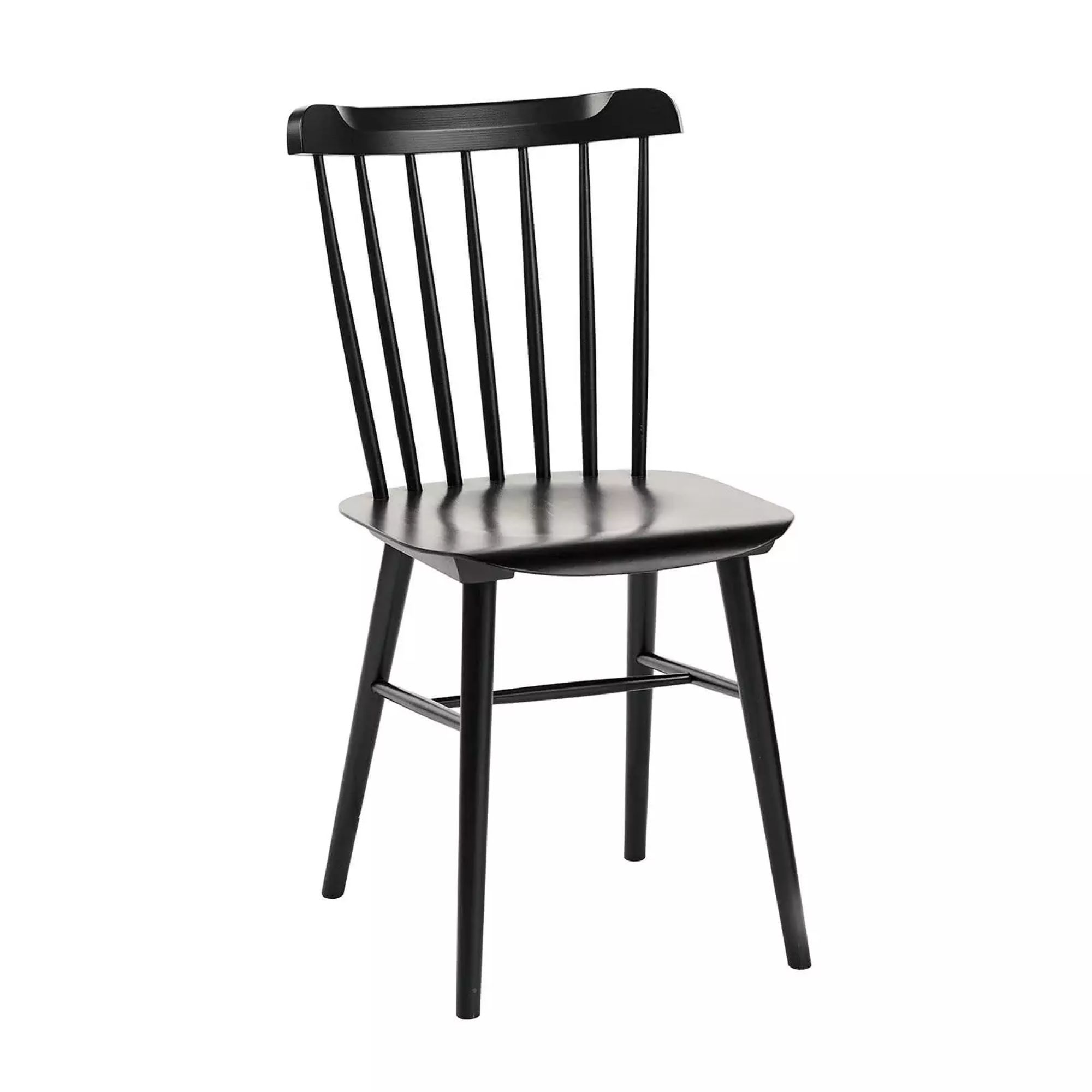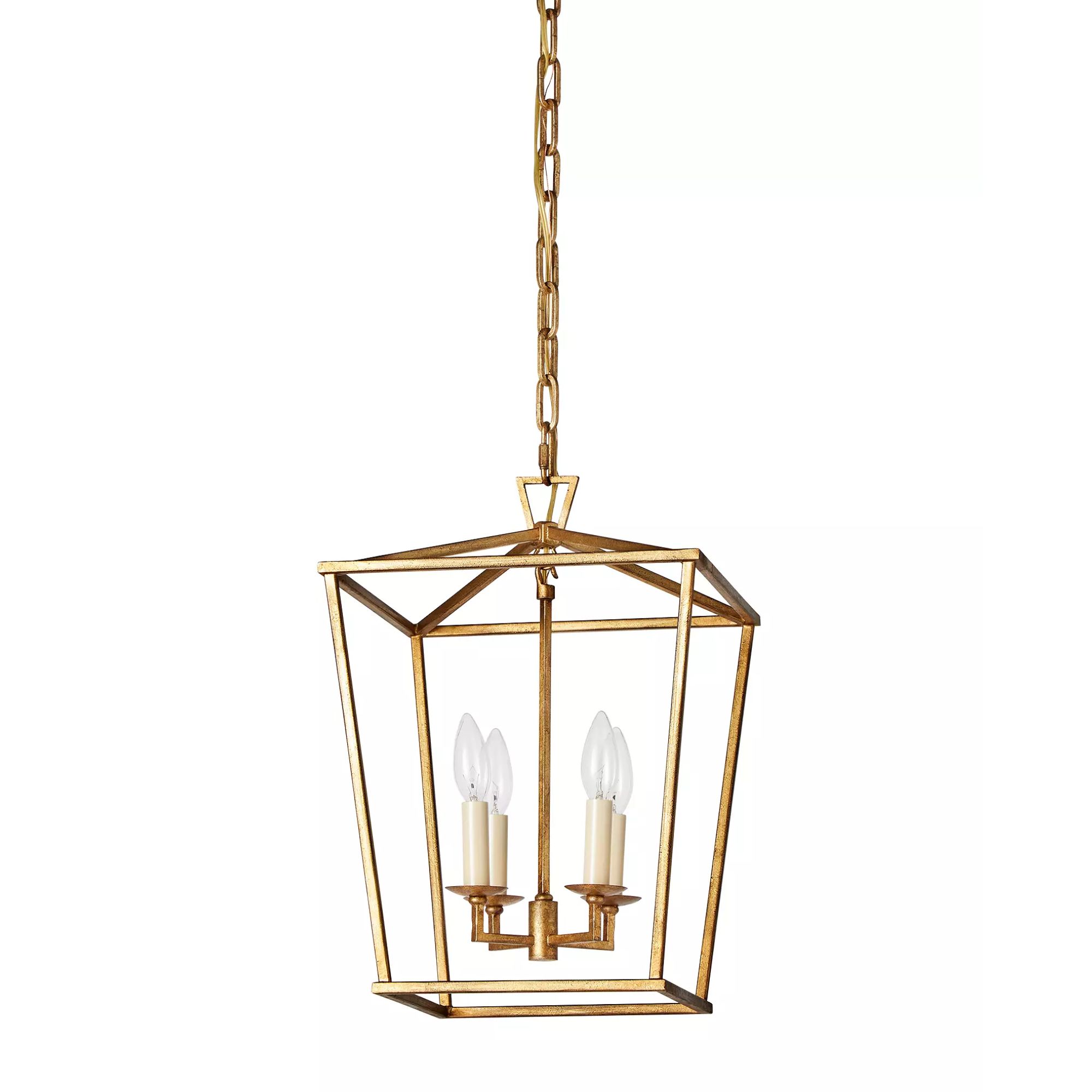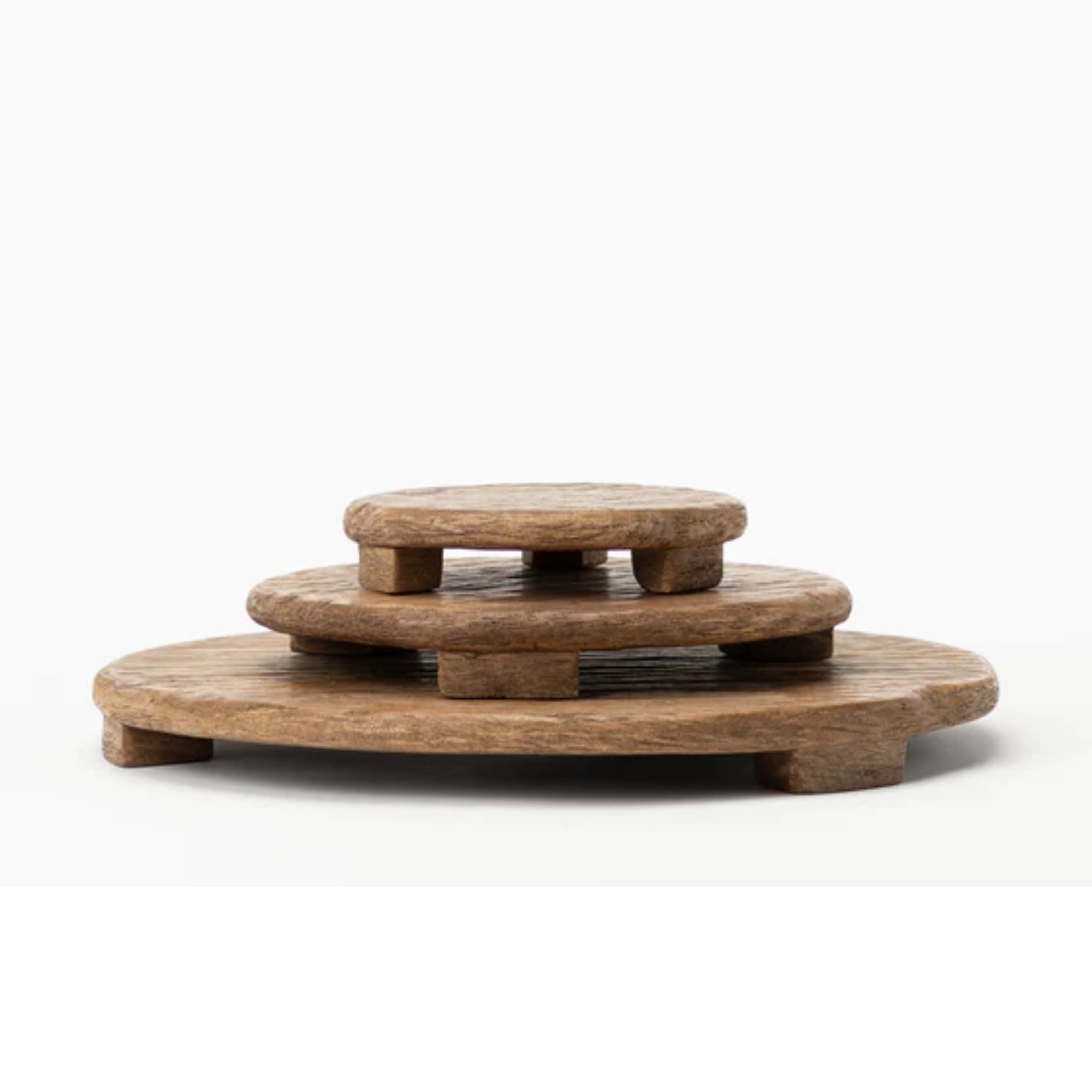9 modern farmhouse dining room ideas that are warm and welcoming
Balance old and new, country and contemporary with these modern farmhouse dining room ideas

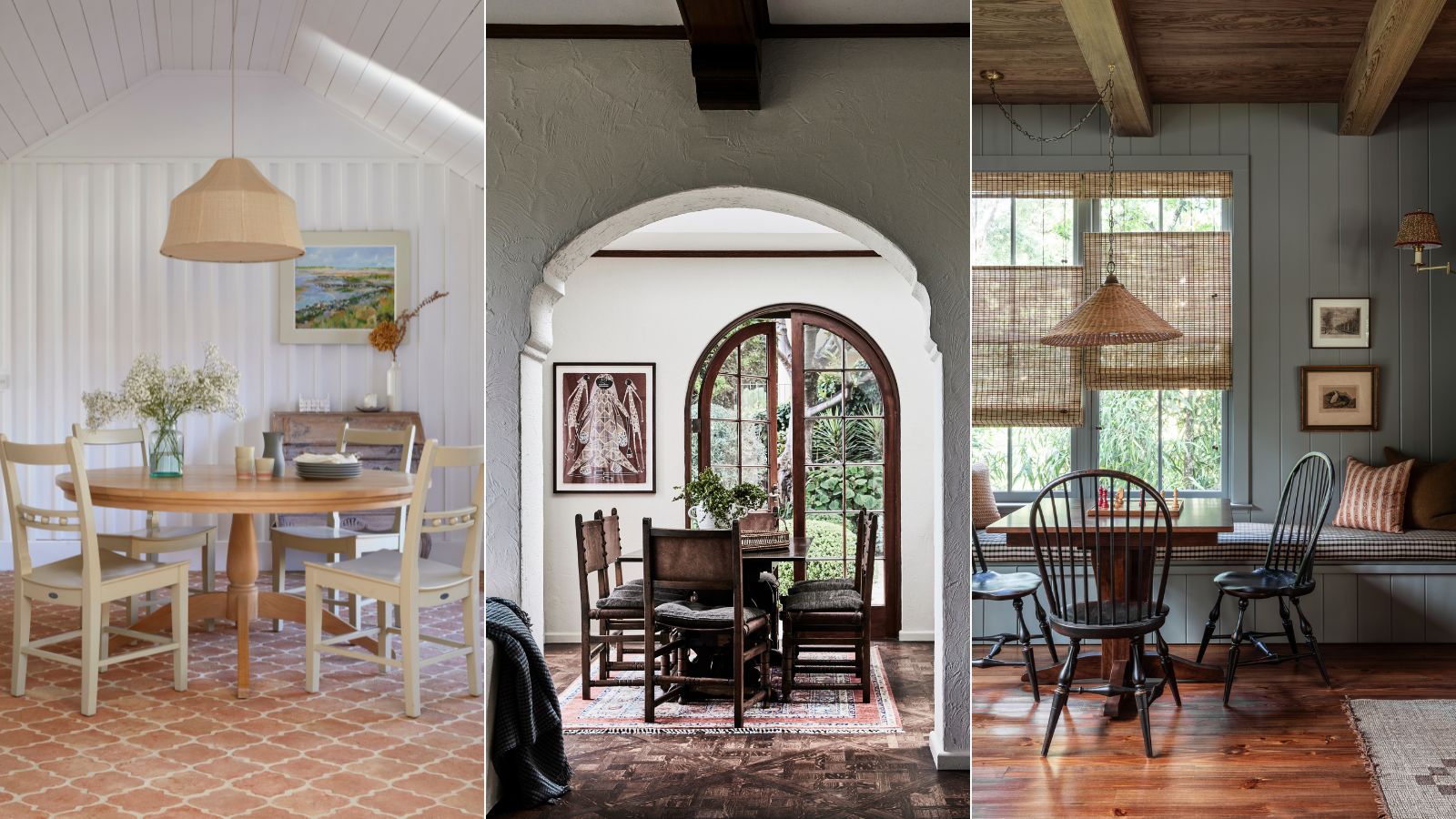
- 1. Start with a soft color palette
- 2. Create texture with shiplap
- 3. Mix patterns and prints
- 4. Gravitate towards natural materials
- 5. Include a large table for gathering
- 6. And perfectly mis-matched chairs
- 7. Go big on lighting and accessories
- 8. Bring in antiques
- 9. Try rustic wood or terracotta floors
Design expertise in your inbox – from inspiring decorating ideas and beautiful celebrity homes to practical gardening advice and shopping round-ups.
You are now subscribed
Your newsletter sign-up was successful
Want to add more newsletters?

Twice a week
Homes&Gardens
The ultimate interior design resource from the world's leading experts - discover inspiring decorating ideas, color scheming know-how, garden inspiration and shopping expertise.

Once a week
In The Loop from Next In Design
Members of the Next in Design Circle will receive In the Loop, our weekly email filled with trade news, names to know and spotlight moments. Together we’re building a brighter design future.

Twice a week
Cucina
Whether you’re passionate about hosting exquisite dinners, experimenting with culinary trends, or perfecting your kitchen's design with timeless elegance and innovative functionality, this newsletter is here to inspire
A modern farmhouse dining room is one that blends rustic charm with nostalgia and elements of contemporary design. It should be warm, welcoming, and ready for hosting in an instant.
Modern farmhouse ideas are the perfect mix of old and new. Think reclaimed tables with black dining chairs, or shiplap walls in a modern hue with minimalist accessories. It's all about striking that balance and doing so in a way that feels unique to you and your home.
Whether you want to spruce up your dining room or create a cozy kitchen nook, the modern farmhouse aesthetic lends itself beautifully to a variety of spaces. From sourcing antiques to nailing your dining room color scheme, these modern farmhouse dining room ideas are sure to inspire your scheme. Here's what the experts want you to know.
9 Modern Farmhouse Dining Room Ideas
Modern farmhouse style is a fusion of farmhouse warmth and contemporary flair, offering the best of both worlds in comfort and sophistication. If you're looking to exude an inviting ambiance in your dining room that beckons family and friends to gather for hearty meals and even heartier conversations, perhaps this design style might be the one for you.
Depending on your taste, a transitional design dining room can lean more traditional or contemporary. So long as you look to blend old and new, and always keep things feeling cozy. These 9 modern farmhouse dining room ideas should offer plenty of inspiration for bringing this timeless style into your home.
1. Start with a soft color palette
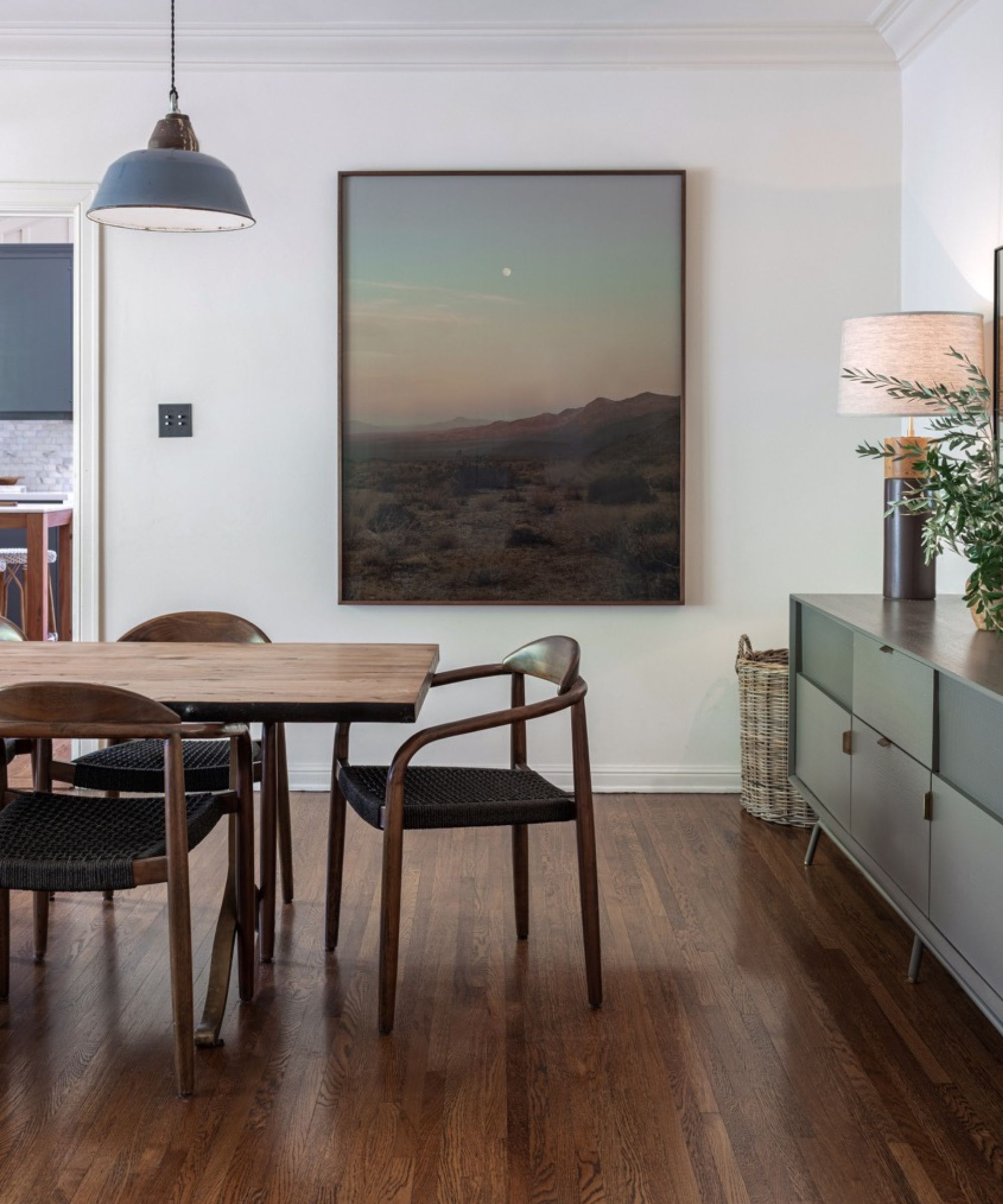
A soft, muted color palette sets the stage for an inviting atmosphere. Not only this, but it will allow you to layer up your design with texture, decor pieces, and patterns without it all feeling too much.
Interior designer Jillian Kliewer, who designed the space above, says: 'The large photograph by artist Sean Pierce was the main inspiration for this dining room. The modern, rustic, and vintage farmhouse pieces were all informed by the art's color palette.'
Design expertise in your inbox – from inspiring decorating ideas and beautiful celebrity homes to practical gardening advice and shopping round-ups.
When selecting colors for your dining space, consider tones that evoke the feeling of nature. Soft greens can infuse the room with a subtle hint of rustic charm, while pale blues will feel super serene. Warm clay pinks would also work lovely with the mix of woods in a modern farmhouse dining room. Decorating with neutrals will of course create a sense of warmth and coziness while maintaining a fresh, contemporary feel.
'I think we are removing away from the cookie-cutter, modern farmhouse look that we have seen so much of in the recent past,' says designer Mindy Laven. 'We are using color instead of simply painting it white. To me, this feels a bit more authentic, and a little less trite than we have seen in the past. Moody paint colors and fabrics add to the ambiance of this updated farmhouse look.'
2. Create texture with shiplap
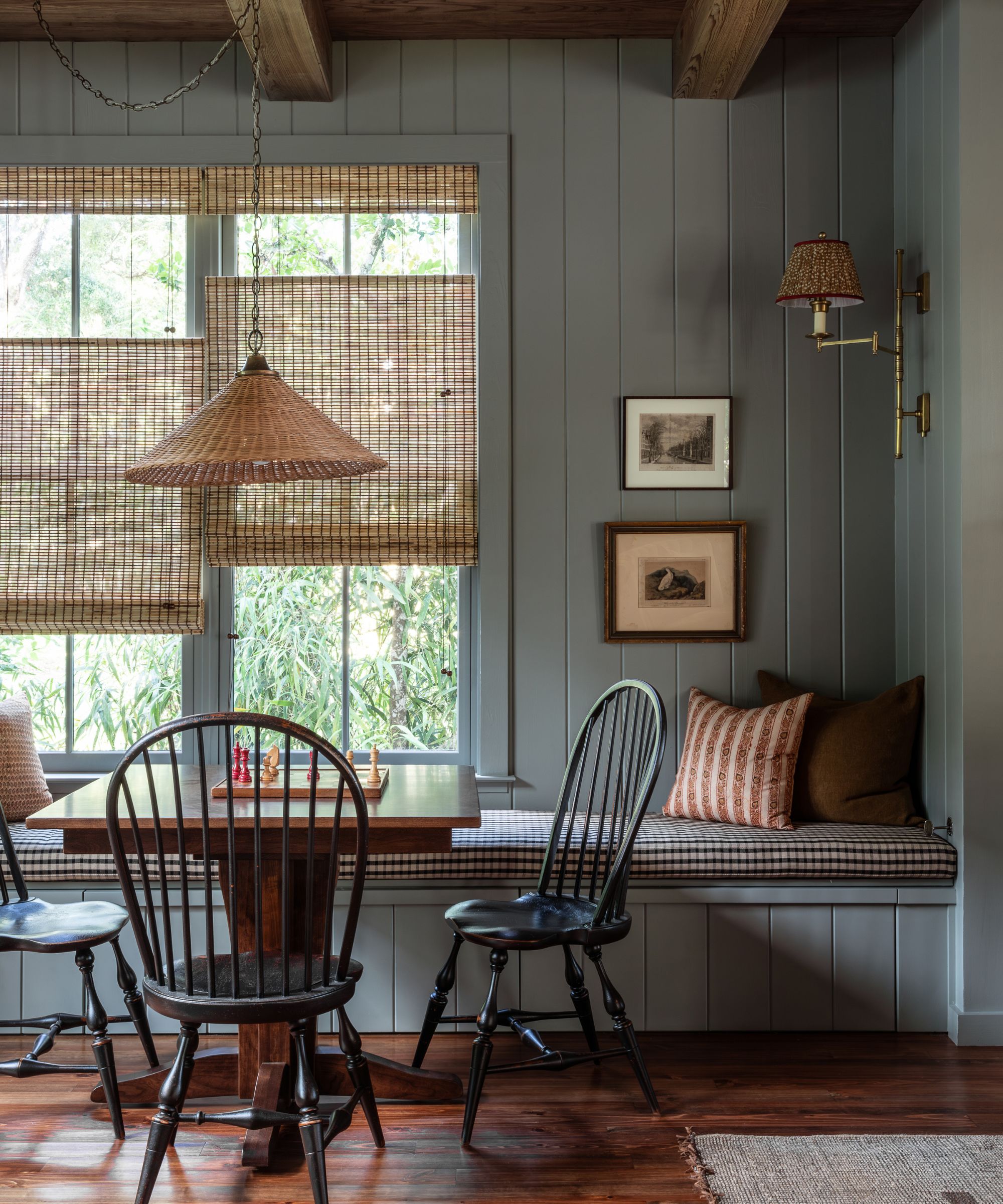
Whether you add it to the wall at full or half-height, a ceiling treatment, or even incorporate it into furniture pieces like built-in cabinetry or dining benches, shiplap is a mainstay in modern farmhouse style. Renowned for its ability to add texture, character, and a touch of rustic charm to any space, paneling ideas for walls lend themself to a variety of applications.
'The key to modern farmhouse design is layered textures – the more the merrier,' says Courtnay Tartt Elias, founder of Creative Tonic Design. 'Traditionally farmhouse elements like wood dining tables with a lovely patina or shiplap walls read more modern when paired with bright fabrics seen in drapery or upholstery. Wood dining chairs with an aged finish can be updated with bold upholstery next to a modern tulip table. The fun is in the mixture of elements of various styles,' she adds.
For a more traditional farmhouse look, opt for natural wood shiplap with a weathered finish. Alternatively, you can paint the shiplap in a crisp white or soft neutral tone for a more contemporary twist.
3. Mix patterns and prints
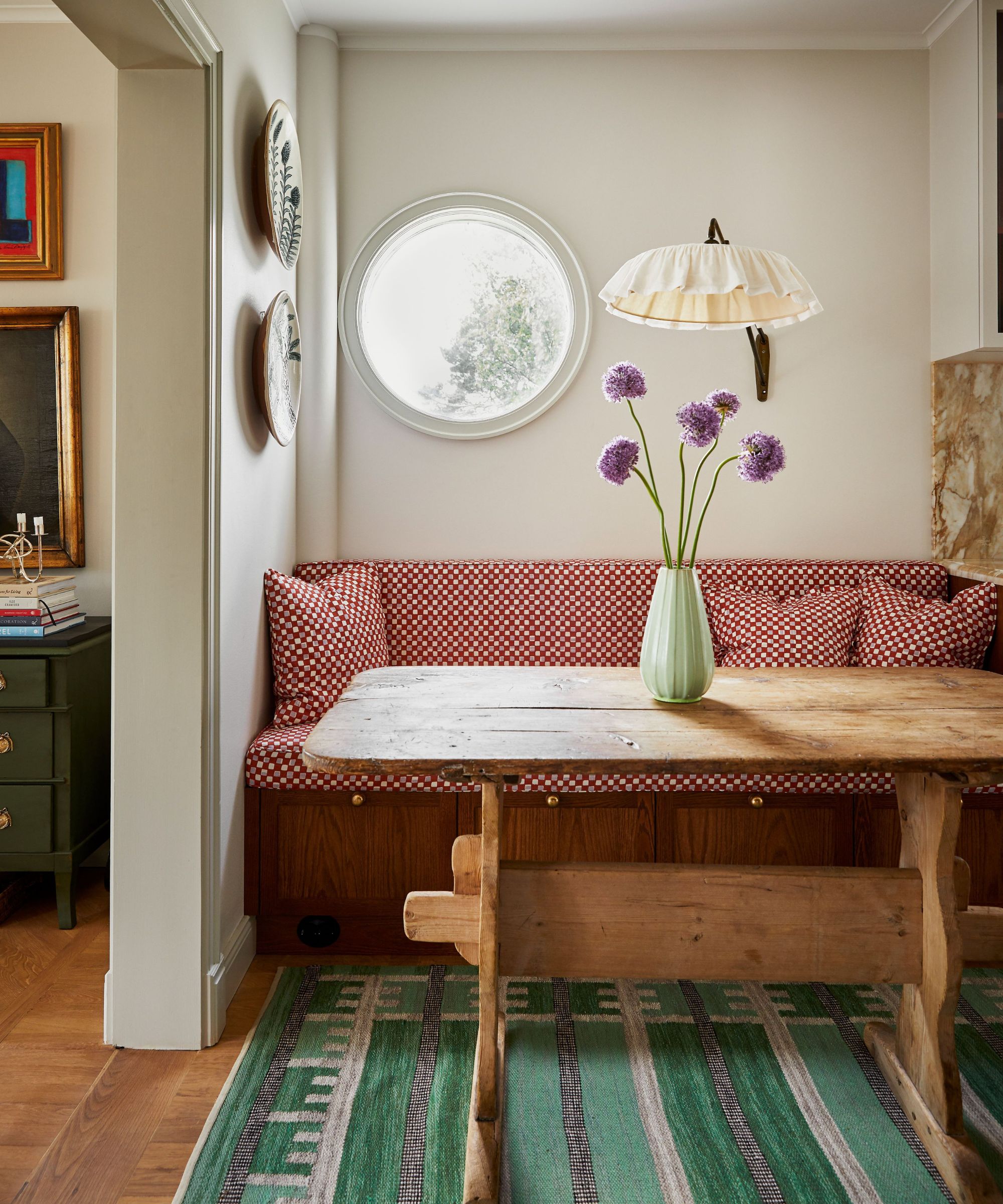
This interior design style is all about an eclectic mix. Combining patterns and prints is a great way to infuse personality into even the smallest of spaces. It allows you to play with scale, color, and texture.
'Modern Farmhouse is an aesthetic that consciously steers away from schemes and mood boards,' explains Cathy Nordström. 'Furniture and decorative objects should be flea market finds and antiques, and, when it comes to pattern and textiles, ginghams, checks, and stripes are key. Nothing really needs to match, which conveys warmth and a sense of embrace. It’s a great look for family homes as it’s not too precious.'
It's essential to strike a balance between cohesion and contrast. The key is to blend patterns that share a common color palette or theme so start by selecting a dominant pattern or print as your anchor, such as a classic gingham or subtle floral motif. From there, layer in complementary patterns of varying scales and textures to create intrigue.
4. Gravitate towards natural materials
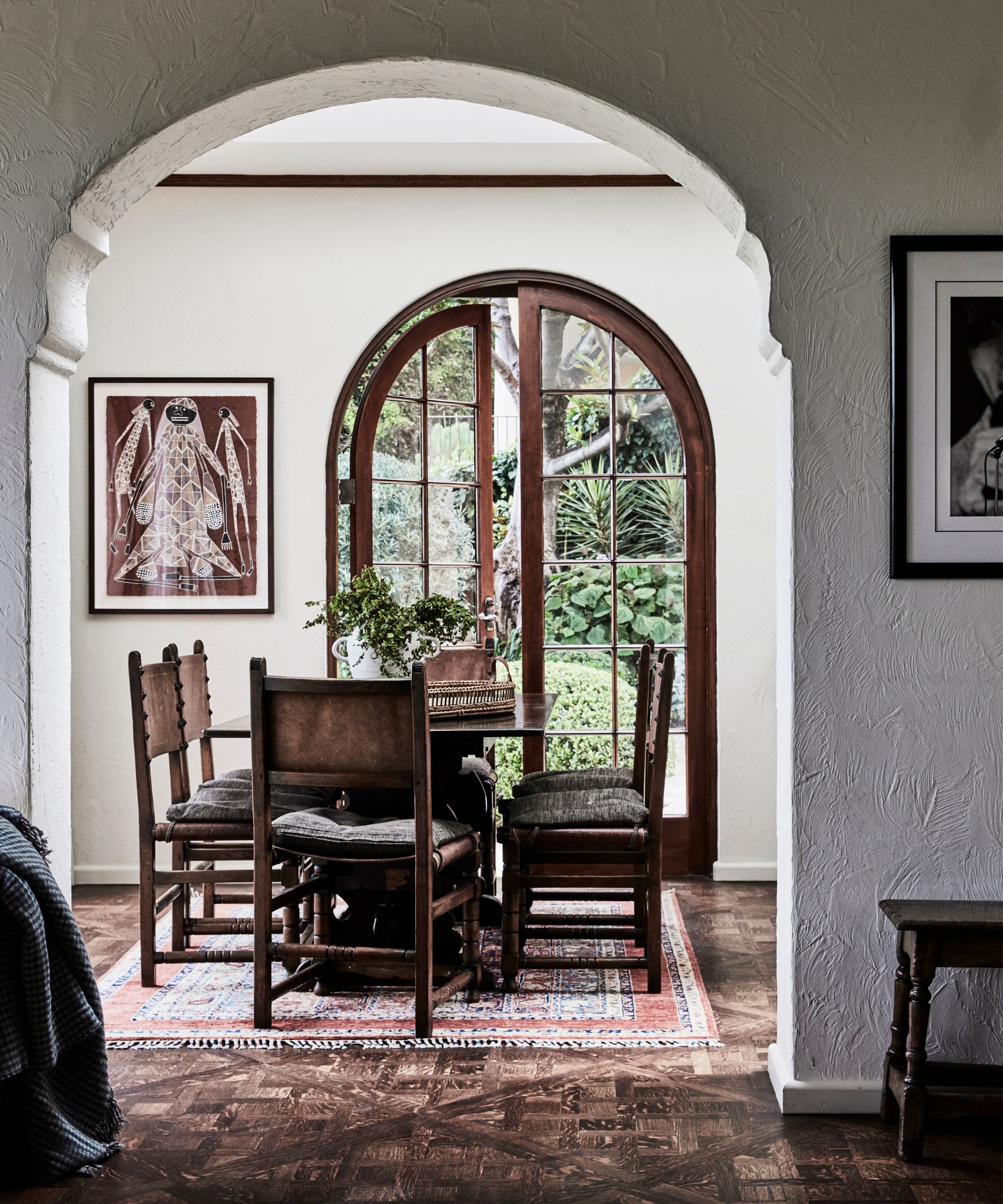
Natural materials are not just trendy but are a timeless way to create an authentic and inviting dining space.
Wood, stone, metal, and textiles derived from natural fibers are hallmark materials in modern farmhouse dining rooms. These materials bring a tactile quality that creates a welcoming atmosphere for gatherings.
'So much of it comes down to materials used,' says Tori Murphy. 'Natural materials that speak for themselves and have a sense of character, while imperfections are allowed to shine through. Layers of fabrics like cotton, wool, and linens should all be well-loved and softened with age. Gentle hues in paint colors, timber, and stone act as the perfect backdrop for possessions that are gathered considerately over time.'
Opting for solid wood furniture pieces, such as dining tables crafted from reclaimed wood, adds a sense of history and character to the room. Don't be afraid to mix your wood tones and eras when sourcing pieces.
5. Include a large table for gathering
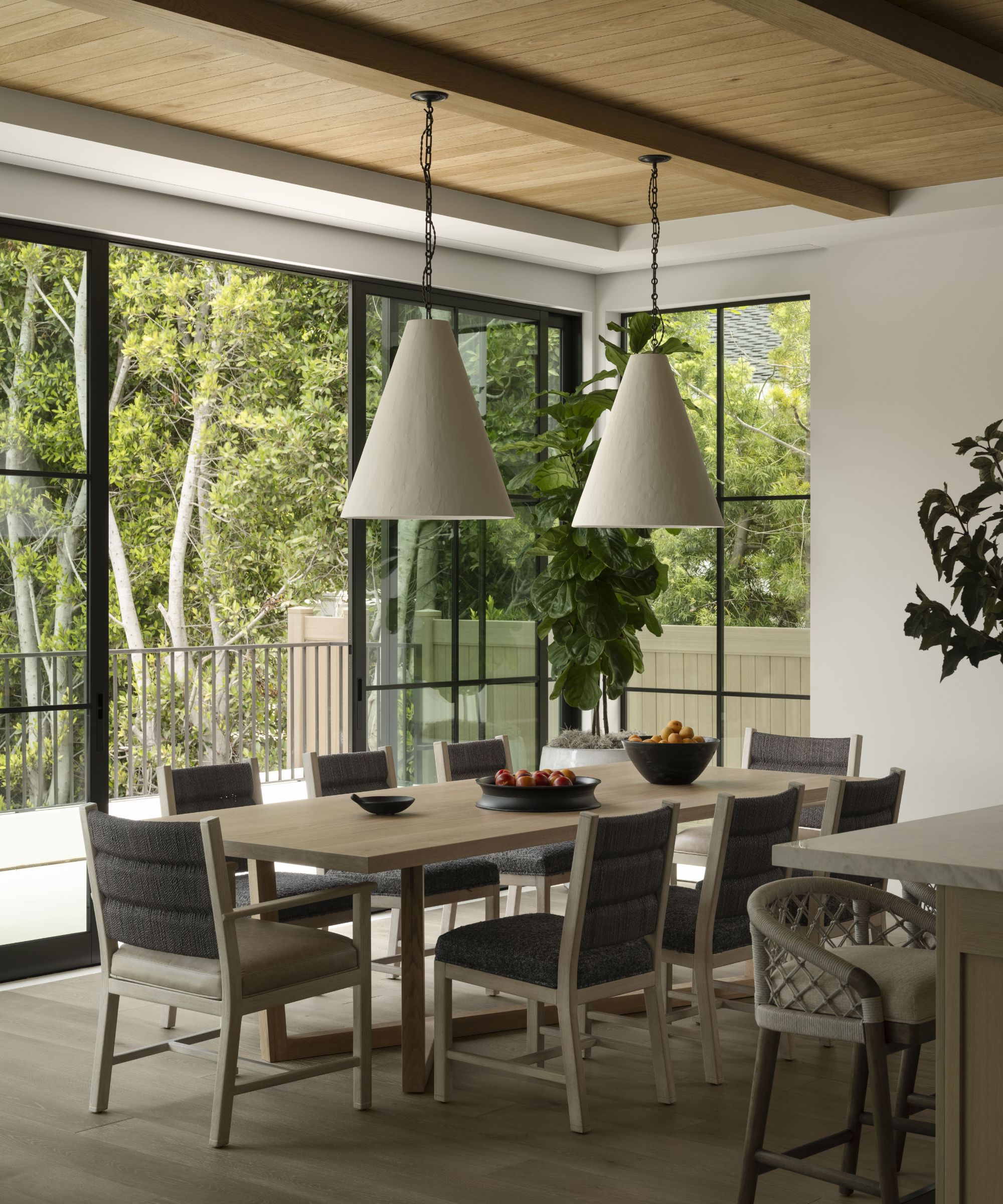
At the heart of every dining room lies a table for gathering, sharing meals, and creating cherished memories with loved ones. So of course in a modern farmhouse setting, the table is incredibly important.
'The anchor of any modern farmhouse dining room should always be a really beautiful dining table that exudes a cozy farmhouse aesthetic, but also features a distinctly modern look with clean lines and of-the-moment design elements,' suggests Kathy Kuo.
'A great table will serve as the perfect canvas for seasonal decor elements that also complement a modern farmhouse look. Think chic table runners for different seasons, modern vases in organic shapes and colors, and artisanal dishware that feels equal parts relaxed and luxurious.'
Solid wood tables with a distressed or weathered finish are particularly well-suited to the rustic charm of farmhouse style, adding a sense of history to the space. Just be sure to balance the look with more contemporary dining chairs.
6. And perfectly mis-matched chairs
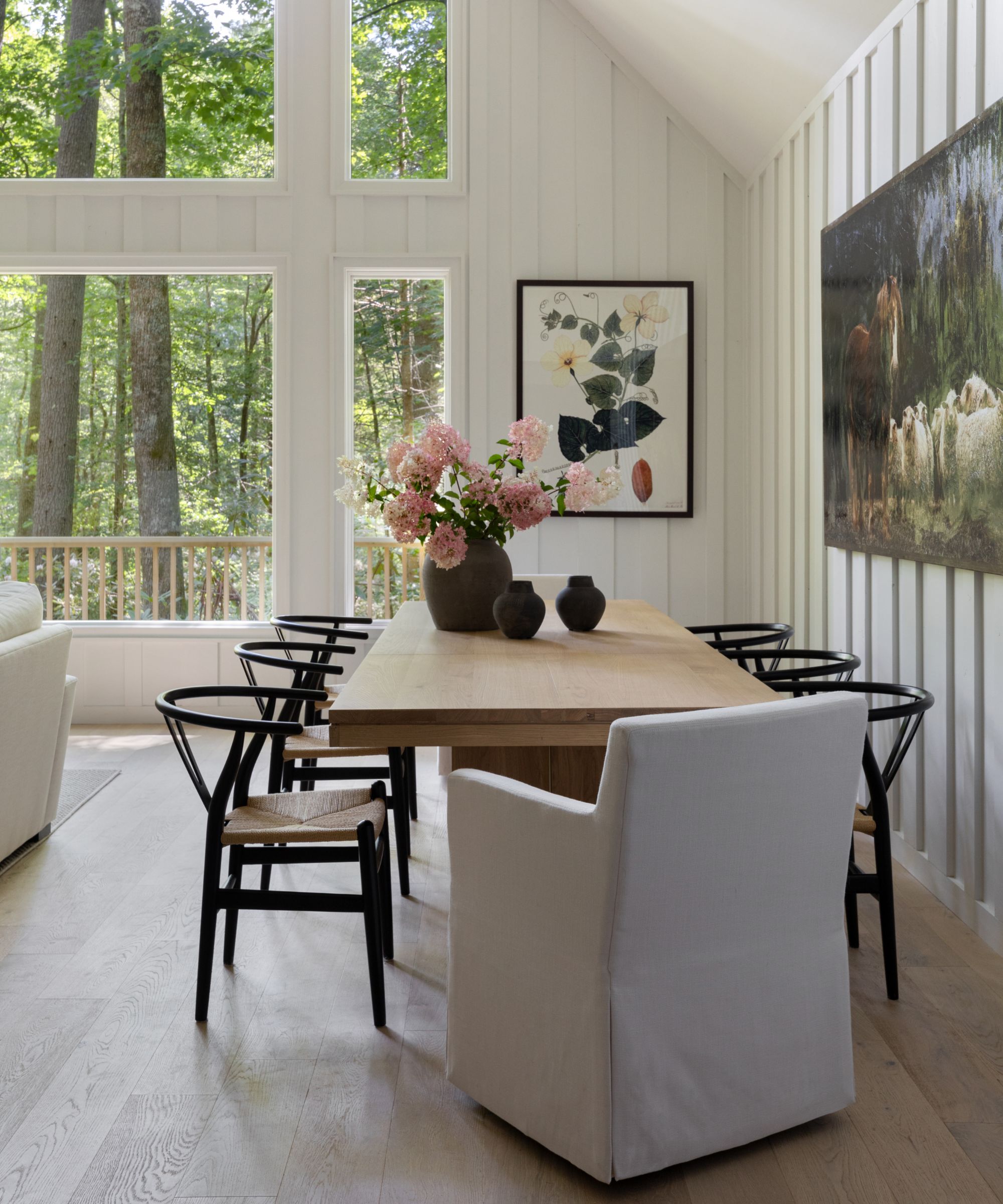
Use mismatched seating to create a more casual dining space that still feels designed. Most dining room furniture ideas are focused on being symmetrical and matching but with modern farmhouse style, you want things to feel more effortless and thrown together.
Designer Paloma Contreras chose to anchor the head of her table with a linen slip-covered dining chair with arms that look oh-so-comfortable. The mix of a pale oak table and more contemporary black chairs nails the balance of old and new this design style calls for.
While a few chairs around the table may have their own style, material, or finish, it is crucial that there should be a unifying factor to create visual harmony. This could be a shared color palette, similar silhouette, or common design motif. Experiment with different combinations until you find a mix that feels curated yet casual.
7. Go big on lighting and accessories
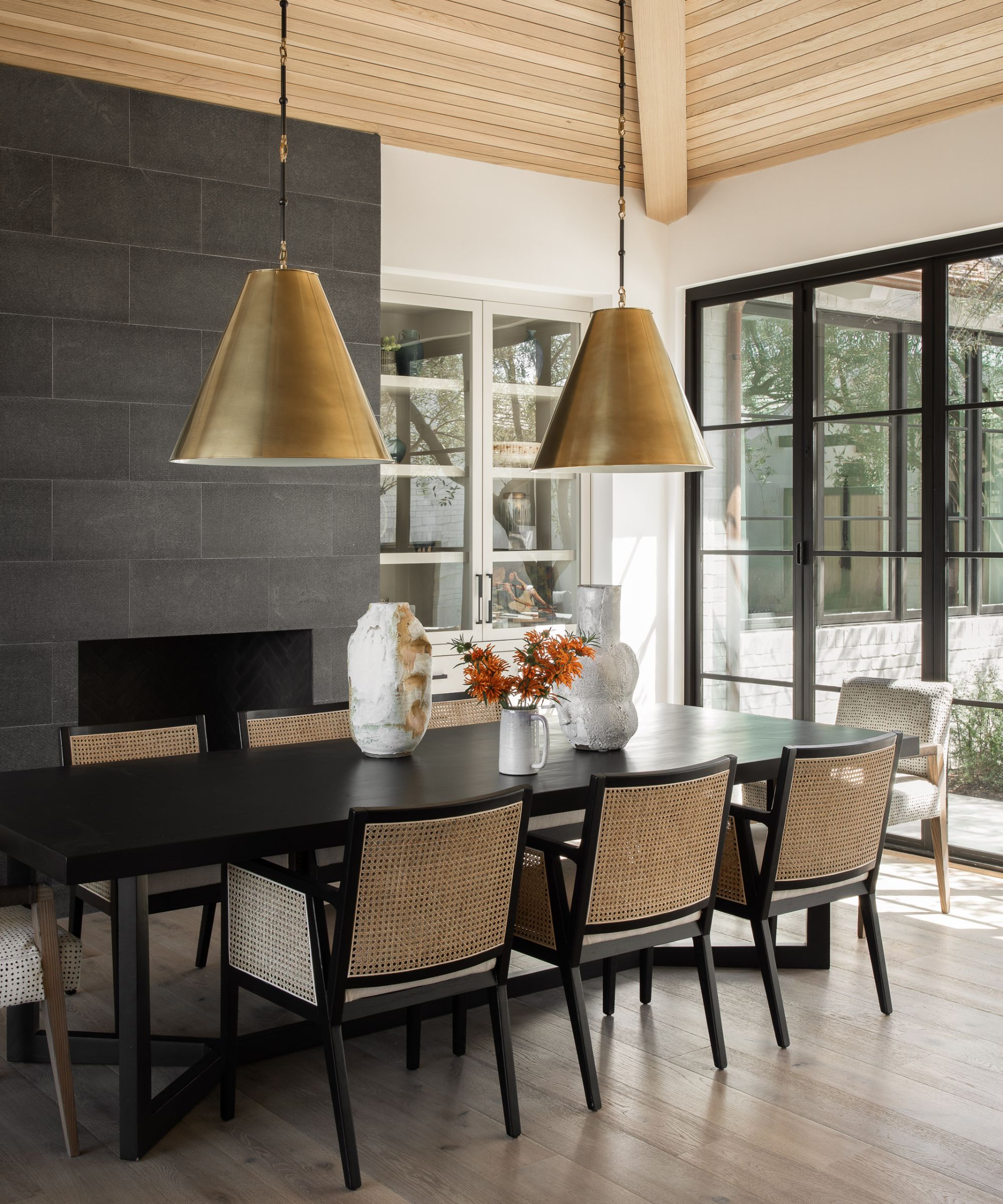
The right lighting, decor, and accessories can transform a space, adding depth, drama, and personality. In a modern farmhouse dining room, embracing oversized lighting fixtures and statement accessories is essential for creating cohesion between the old and the new.
A large, statement chandelier or pendant lights will serve as the focal point of the space, meaning you don't have to do much styling below. However, a textured rug or a vignette of decorative objects on the table won't go amiss. Incorporate oversized mirrors, artwork, and decorative objects like vintage vases, ceramics, or woven baskets to add layers of charm and personality.
'Modern farmhouse dining rooms blend the warmth and charm of traditional farmhouse style with sleek, contemporary elements,' says Denise Morrison of Morrison Interiors. 'Incorporate industrial-inspired lighting fixtures and comfortable, upholstered seating for a touch of sophistication. Whether it's a formal dinner party or a casual family gathering, modern farmhouse dining rooms offer a perfect balance of comfort and style,' she adds.
8. Bring in antiques
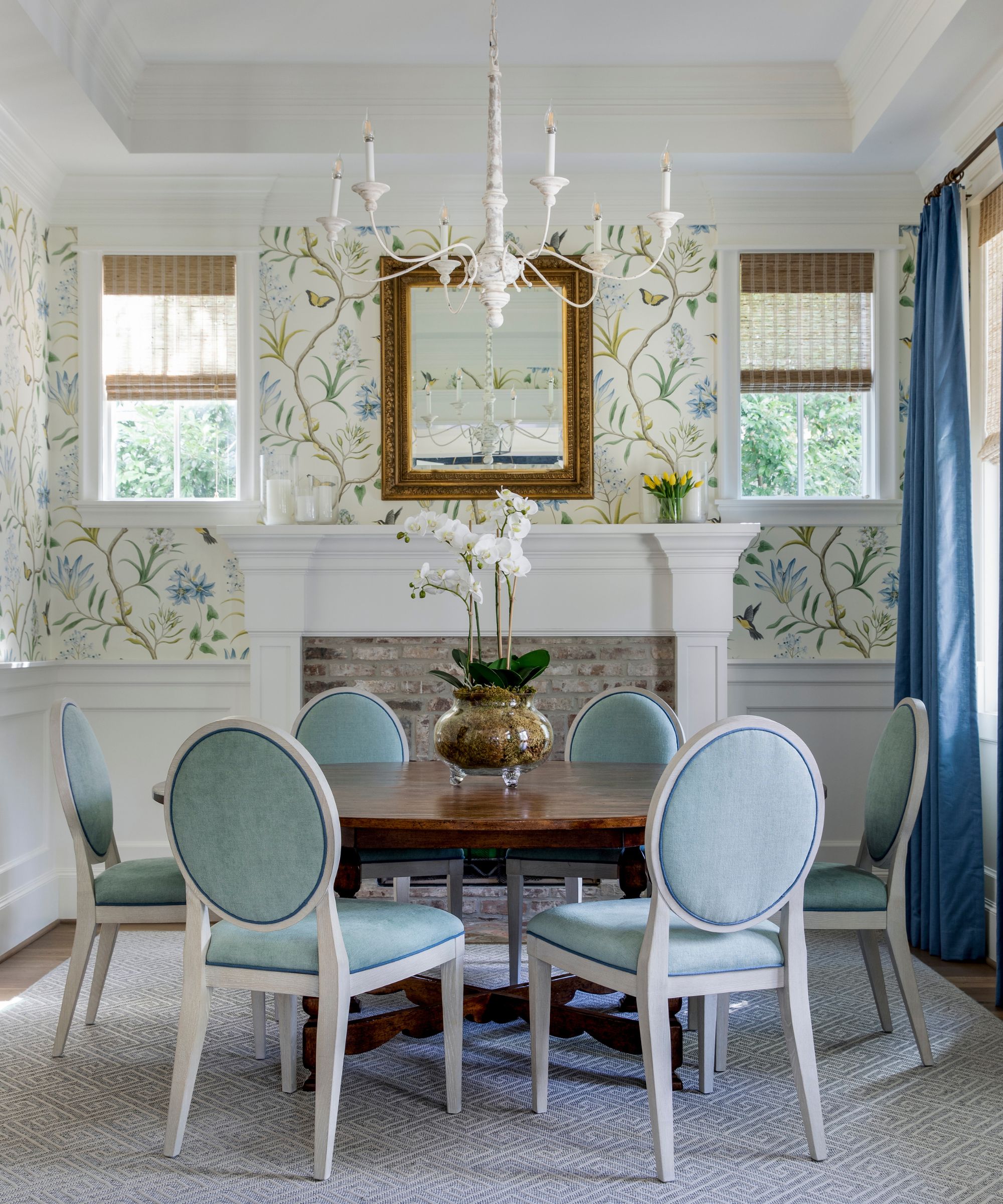
If cozy, old-world charm is what you're after, then seek out vintage pieces and antique finds. When selecting pieces for your dining room, consider vintage or decorating with antique pieces that resonate with the farmhouse aesthetic, tell a story, and complement your design vision.
'We created a modern farmhouse feel in this dining room by using an antique scalloped wood table,' says interior designer Jennifer Barron, who designed the dining room above. 'Bringing in this large wood piece instantly created a farmhouse feel with its rich patina.'
'The distressed white chandelier paired with the brass gilded mirror elevates the room to a space that feels more modern and a touch less casual. The wallpaper is the finishing touch – bringing in butterflies and greenery, one is reminded of the elements of nature, all while staying clean and fresh in design.'
Look for vintage furniture, such as a farmhouse table, sideboard, or hutch, that showcases craftsmanship and patina. While vintage sellers tend to prioritize wood finishes, be sure to mix in other materials such as iron, metal, brick, and stone for a more modern vibe.
9. Try rustic wood or terracotta floors
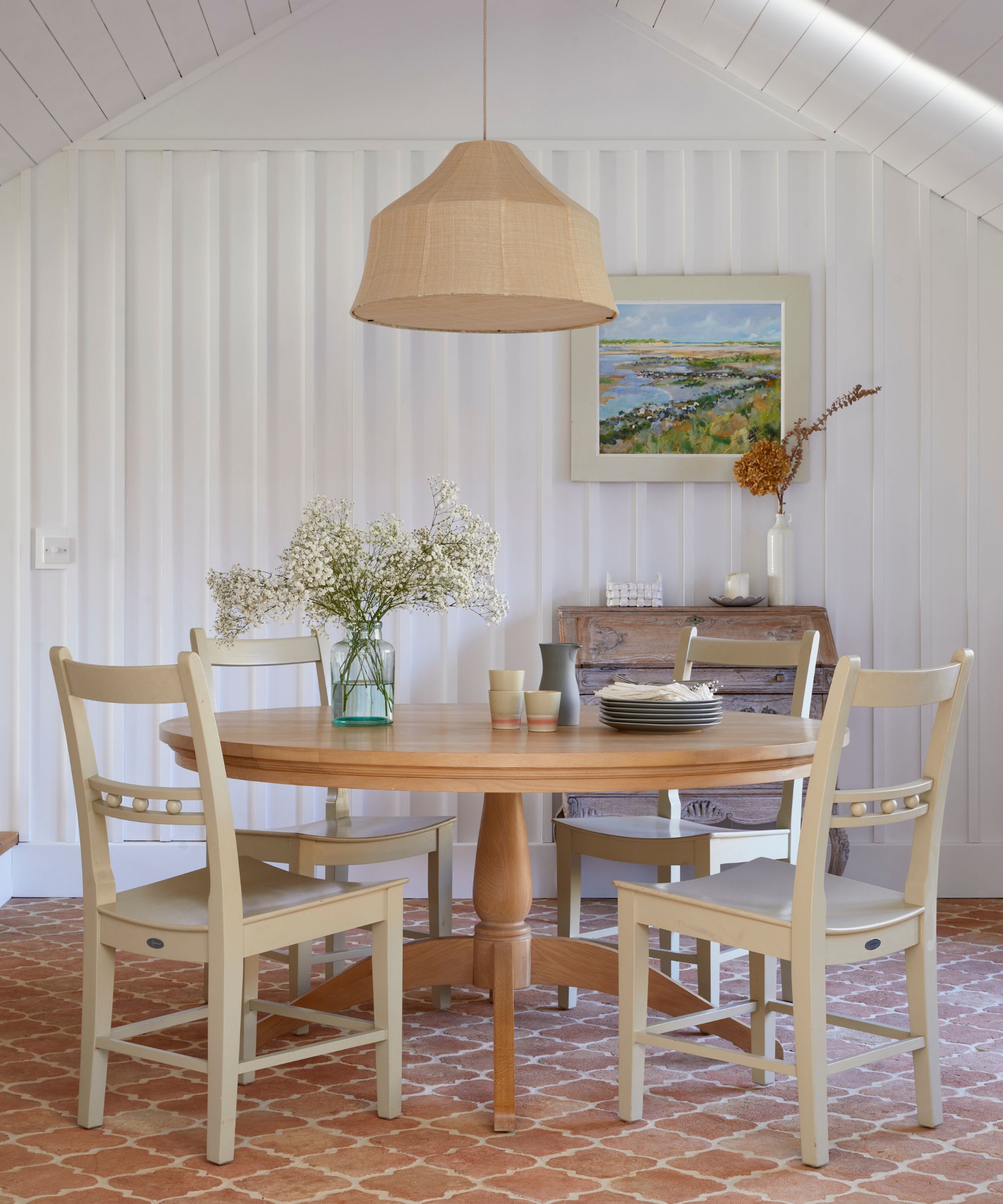
Rustic wood and terracotta floors are quintessential elements of farmhouse design, offering durability, charm, and a connection to the natural world.
Grazzie Wilson, head of creative at Ca’ Pietra, says: 'Terracotta tiles make for a floor that’s rich and warming to the eye and is both earthy and textured underfoot, making it the perfect addition to modern farmhouse dining rooms.'
'Choosing terracotta flooring means you’ll have a floor that is ready to embrace life’s rough and tumble while never looking anything less than 100% stylish, especially given that warming, nurturing colors and textures and dominating interiors right now.'
The flooring of a dining room plays a crucial role in setting the tone for the space, and opting for wood or stone floors can add warmth, texture, and character that epitomize the farmhouse aesthetic.
In the modern farmhouse dining room, every detail tells a story and every choice reflects a commitment to comfort, authenticity, and the joy of shared experiences. Whether you're drawn to the cozy, lived-in feel or the eclectic mix of textures and patterns, there's a scheme to suit every taste and preference. The most successful ones have the perfect balance between old and new, embrace natural materials, and pieces that tell a story.

Charlotte is the style and trends editor at Homes and Gardens and has been with the team since Christmas 2023. Following a 5 year career in Fashion, she has worked at many women's glossy magazines including Grazia, Stylist, and Hello!, and as Interiors Editor for British heritage department store Liberty. Her role at H&G fuses her love of style with her passion for interior design, and she is currently undergoing her second home renovation - you can follow her journey over on @olbyhome

